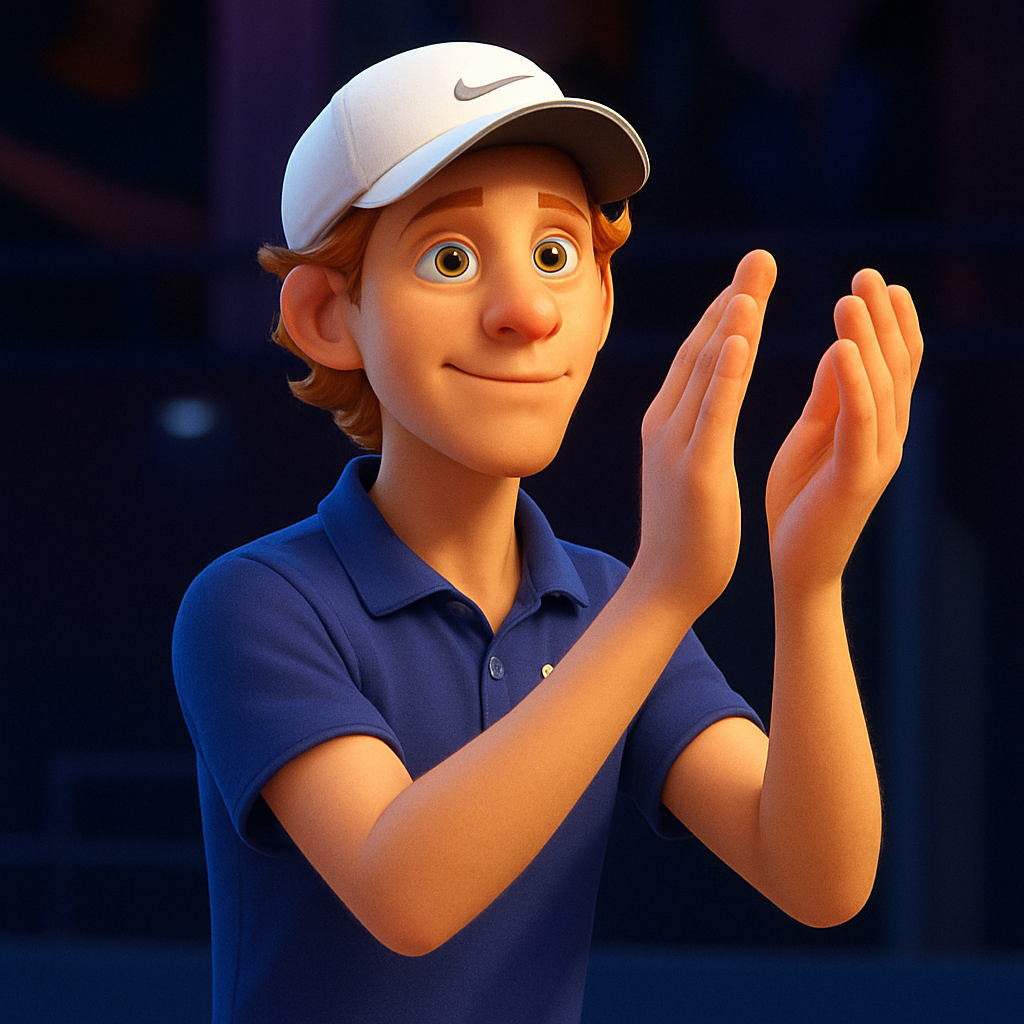Jannik Sinner, the newly crowned World No. 1, has revealed the unique and challenging dynamic of his relationship with coach Darren Cahill, describing the Australian as a "second father" with whom he has a strict agreement to always speak the truth, no matter how difficult the conversation.
This candid admission comes on the heels of Sinner's historic achievement of reaching the Wimbledon final, a career-first that was swiftly followed by the announcement of a new, multi-year partnership with the Italian coffee giant, Lavazza. The deal signifies Sinner's soaring status in the sport and his marketability as a global icon.
In an exclusive interview with Corriere della Sera, Sinner lifted the lid on the profound bond he shares with Cahill, a partnership that has been instrumental in his meteoric rise from a talented junior to the summit of men's tennis. "With Darren, we have an agreement: we must always tell each other the truth, even when it hurts," Sinner confessed.
The Foundation of Honesty
Sinner elaborated on this foundational pact, explaining that the raw, unfiltered feedback is what drives his continuous improvement. He acknowledged that these conversations are not always easy, especially in the immediate aftermath of a tough loss or a subpar performance. "Sometimes after a match, you need half an hour to cool down, but then we talk," he said.
This commitment to brutal honesty extends beyond tactical adjustments. Cahill, a renowned man-manager who has previously guided the careers of Grand Slam champions like Lleyton Hewitt and Simona Halep, is deeply involved in Sinner's holistic development. "He is like a second father to me," Sinner stated, underscoring the level of trust and respect between them.
The Italian prodigy detailed how Cahill's influence permeates every aspect of his life on tour, from his physical conditioning and nutrition to his mental fortitude and media dealings. This comprehensive support system has been crucial in transforming Sinner from a purely baseline power-hitter into a more complete, versatile, and mentally resilient player.
Navigating the Newfound Spotlight
With the World No. 1 ranking and the Lavazza ambassadorship, Sinner's life has irrevocably changed. The Lavazza deal, in particular, is a quintessentially Italian partnership, aligning the nation's brightest sporting star with one of its most iconic brands. The increased scrutiny and commercial demands require a new level of professionalism and time management.
Sinner admitted that managing this new reality is a work in progress and is precisely the kind of topic that will necessitate one of those difficult conversations with Cahill. "We will have to talk about how to manage all of this," he said, referring to the amplified off-court commitments.
The key, according to Sinner, is maintaining the ruthless prioritization that got him to the top. His team, which also includes primary coach Simone Vagnozzi and fitness trainer Umberto Ferrara, is built to protect his primary objective: winning tennis matches. The recent successes have only reinforced their philosophy, which includes:
- Radical Honesty: No topic is off-limits for discussion and critique.
- Process Over Outcome: Focusing on daily improvement rather than rankings or titles.
- Controlled Environment: Shielding Sinner from unnecessary distractions to preserve mental energy.
The Wimbledon Crucible and Looking Ahead
Sinner's run to the Wimbledon final was a testament to his growth. While he ultimately fell to a brilliant Carlos Alcaraz in a five-set thriller, the experience was invaluable. "It was a great tournament for me, my first final here. I learned a lot," he reflected after the final.
The match itself provided a clear roadmap for the conversations he will have with Cahill and Vagnozzi. Analyzing the key moments where the match slipped away—particularly his dip in level after winning the second set—will be a primary focus. "We have to look at the small details, the moments I could have managed better," Sinner noted.
The Physical and Mental Grind
Another critical area for development is physical resilience. The five-set Grand Slam format presents a unique challenge, and Sinner has openly discussed the need to improve his strength and stamina to consistently compete at the deepest stages of majors. This physical work is intrinsically linked to the mental game, another area where Cahill's guidance is paramount.
Sinner's ability to stay calm under pressure has improved dramatically, but as the Wimbledon final showed, maintaining that composure for over four hours against the very best is the final frontier. "The mind is everything in these moments. You have to be strong, you have to believe," he said.
A Partnership Forged in Trust
The "second father" dynamic is not something Sinner uses lightly. It speaks to a relationship that transcends the typical player-coach transaction. Cahill has earned that title through his unwavering support, his tough love, and his genuine investment in Sinner as a person, not just a tennis player.
This foundation of trust is what allows for the difficult, truth-telling conversations to happen. Sinner knows that any critique from Cahill comes from a place of wanting what is best for him. In the high-stakes, high-pressure world of professional tennis, that kind of unwavering support system is priceless.
As Sinner navigates his new life as the face of tennis and a national hero in Italy, the guidance of his "second father" will be more critical than ever. The conversations about managing fame, pressure, and expectation may be difficult, but they are conversations Sinner is prepared to have.
"This is just the beginning," Sinner concluded, a hint of steely determination in his voice. "The work never stops. With my team, we know what we have to do. We will talk, we will be honest, and we will get better." For the rest of the ATP Tour, that is a daunting prospect. The World No. 1, armed with a Grand Slam final on grass and a "second father" in his corner, is only just getting started.

